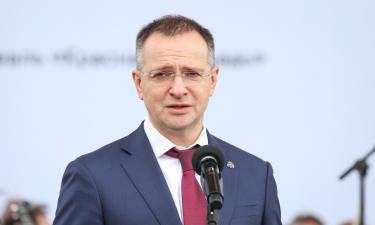Can Russia prevent first nuclear war between USA and North Korea?
Tensions around North Korea's nuclear program continue to grow. Since the beginning of the 2000s, the DPRK has launched several nuclear programs, including the one for the development of ballistic nuclear weapons. South Korea, Japan and the USA remain highly concerned about Pyongyang's nuclear experiments.
However, the USA pulls out from six-party talks with North Korea, when this process actually reached a deadlock in 2008. There were several reasons for the diplomatic misunderstanding. Firstly, Pyongyang and Washington could not agree on the format of inspections of Korean nuclear programs. Secondly, Japan and South Korea refused to supply fuel for other power reactors and stations in exchange for dismantling the North Korean nuclear reactor.
USA's Ambassador to the UN Nikki Haley explained that the United States did not want to return to the six-party talks. "We don't want to get back into the six-party talks. We're not willing to do that. Been there, done that. We need other countries, specifically China and Russia, to step up and show us that they are as concerned with North Korea as we are," Haley said.
The US agreed to deploy ABM forces in South Korea, having raised serious concerns in China. The latter has imposed a package of sanctions on a number of South Korean companies and boycotted the corporation that sold a plot of land for the deployment of the US army base in South Korea.
The conflict continues to escalate, and North Korea continues to test its weapons. In a recent test, four ballistic missiles launched by the DPRK fell in the territorial waters of Japan.
As a result, US Secretary of State Rex Tillerson stated on March 17, 2017 that "the policy of strategic patience has ended." To achieve economic prosperity in the future, North Korea needs to understand that it must abandon the development of weapons of mass destruction, including nuclear weapons and ballistic missiles, Tillerson added. The US Secretary of State stressed that the United States was considering an option of a military attack on North Korea, which will naturally trigger a retaliation nuclear strike from Kim Jong Un.
In fact, such aggressive statements from top US officials can only add more fuel to the fire. Russia acts as a regulator of international relations and a peacemaker. Vice Foreign Minister Igor Morgulov stated that the situation in the region was raising serious concerns in Moscow.
"Factors of instability, unfortunately, are growing. We propose to take a complex look on the situation, to break the vicious circle of tensions, when North Korean nuclear experiments force the US and its allies to step up exercises and other types of military activities follow, which in turn pushes Pyongyang to new challenging actions."
According to the Russian diplomat, "our common goal is to ensure the settlement of the problems of the Korean peninsula with peaceful political and diplomatic means in the context of common military and political detente, by building a solid peace mechanism that would create reliable security guarantees for all countries without exception in the region." Morgulov also set out a hope for progress in upcoming talks between Russia and Japan, which will be held on March 20 in Tokyo.
The head of the Federation Council Committee on Defence and Security, Viktor Ozerov, regrets the USA's pullout from six-party talks about the North Korean nuclear program. "Such a possible decision that the US can make is regretful. Once again, it shows that it is Russia and China that should play the main role in the settlement of the North Korean problem," the official said. "This is very typical of the United States. The Americans first actively intervene in internal affairs of other countries before leaving them to the mercy of fate. This has been the case of Iraq, Libya, Yugoslavia," he added.
Subscribe to Pravda.Ru Telegram channel, Facebook, RSS!





